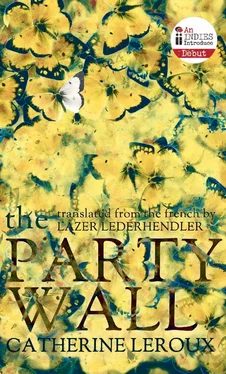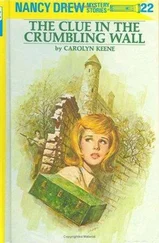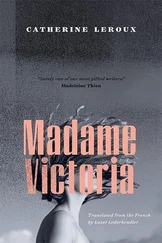“Now we both have another being inside us.”
“Let’s hope there’ll be no more,” Édouard adds. “There’s no room left.”
Madeleine takes a deep breath of salt air. The summer wind carries the messages of migrating whales.
“Just one more month,” she says.
Édouard sighs happily. In a month, the dangerous period will be over. The risk of rejection will become almost nil. And the boat that Yun has been slaving away at every day will be able to cast off. He squeezes Madeleine’s hand.
“Are you certain?”
He repeats the question as a matter of form. The discussion was concluded days ago. Together they finish burying Shabby, Madeleine’s interlocutor, guest, hot-water bottle, guardian, night-light for nearly a third of her life. She takes her son’s arm, looks out over the acre of land that belongs to her, and considers the extent to which she never belonged to it, the extent to which her desire drew her far from the demands of the soil and its shoots, far from the roots that probe the soul. Far from a house that was never open enough. The two of them stop in front of the slowly swaying willow. Two grey stones have been added at the foot of the tree. Madeleine casts Édouard a questioning look.
“For the little girls,” he explains.
Madeleine nods.
“These grounds are getting crowded with the dead.”
She feels as though she is standing in the palm of a large, restless hand. She must readjust herself with every step and test the floor she is treading; the angle is constantly shifting, as are the forces changing it from moment to moment. She endeavours to walk without holding the guardrail, to trust only the rhythm of the rolling as she tries to learn its syncopations.
The luggage and equipment have all found a place in the boat. The berths have been clothed with clean sheets and thick blankets. The provisions are hanging in a net over the little galley. The camera and about fifty rolls of film are tucked away on the deck in the small cabin that in another life was an old-fashioned car. Outside, on the passenger side, Joanna’s bicycle has been solidly secured. As for Édouard and Yun, they’ve settled down under the deck, amid the waves lapping against the hull.
On the pier a few people are waiting in the spindrift. Paul, looking melancholy, is worrying at his rabbit’s foot, while the watchman waves a spotless handkerchief. A few of Édouard’s friends who have gathered are trying to play him a farewell song, but their instruments are stifled by the wind rushing into them. Even the doctor has come, dressed in a fisherman’s raincoat, clearly delighted at the chance to be by the seaside. Madeleine could swear that there, behind them, she has caught sight of Frank and Missy and all the other travellers who have passed through the village, leaving footprints and the indelible impressions of backsides in the sand. She gives them a joyous wave, while Joanna, like a star from the Fifties, smiles and blows them kisses. Édouard weighs anchor as Yun contemplates the shore with an earnest expression, trying to commit its shape to memory so she can include it in the map she is drawing in her mind. There is a bitter onshore wind blowing. Fall is approaching and the warmth of the South throbs on the horizon like a sack of gold at the foot of a rainbow.
They button up their raincoats and lower their hats down on their heads, as if this detail was the last thing that needed to be attended to. When the boat finally casts off, Madeleine has the sudden sensation her lungs have filled with twice as much air, and she hangs on to Joanna’s arm for fear her feet will slip off the deck. The boat heads out clumsily toward the mainland, toward that immensity still unseen, though its mineral rumbling can already be detected. In a few days they will plunge into the maw of an immeasurable gulf that will slowly narrow and gulp them down into the interior, between cliffs bristling with life, reeking of history, shimmering with strength. They’ll avoid the shoals and greet the pods of cetaceans, as they brush by a string of salt-corroded cargo ships and let themselves be guided by a thousand beacons into the heart of America, where they will cut across the Prairies or slide along the Appalachian crests, and there they’ll catch the scent of the deltas and the lakes welling in prehistoric craters. And Madeleine, her fingers buried in her jacket sleeves, will no longer feel her as-yet-unsteady steps on the deck, will no longer hang on to stones and walls, and will stop counting, so that she may, finally, for the first time, be but one.
A PENNY (MONETTE AND ANGIE)
The grassis so high that it stands a good head taller than Monette. This doesn’t bother her, and using a branch she found where the trail begins, she knocks away the stalks that bar the path. She insisted on taking the lead; Angie is close at her heels, brushing the burrs off the little girl’s pink T-shirt and scanning the bushes for snakes and venomous spiders. The cicada’s song covers everything: the crunch of their steps, their thick breathing in the vegetable humidity, and the rustling of potential enemies on either side.
With her free hand, Monette still keeps a firm grasp on the molasses cookie, which she nibbles at parsimoniously. As far as Angie can see, a significant portion of the treat is crumbling its way out of the wrapper, but her sister is too absorbed by the walk to pay attention. Angie recalls the story of Hansel and Gretel and the bits of bread they strewed to be able to find their way again. She turns around several times to see if the birds are snapping up the cookie crumbs.
From time to time the girls must stride over a tiny watercourse gushing across the path toward the river. Monette invariably bends down to try to see some fish and asks:
“Brook or river?”
“Runoff from the rain,” Angie explains.
As it hasn’t rained for weeks, this answer does not sound entirely satisfactory, but Angie makes no attempt to elaborate. Such rivulets and the silty furrows they create are part of the terrain. Water is so abundant in these parts.
The vegetation grows thicker and with it the insects’ song, the cries of the blue jays.
“Are we still in Georgia?” Monette inquires.
“Uh-huh,” Angie softly answers.
The little girl gives her big sister a doubtful look. She asks this same question whenever she finds herself in a place without houses or pavement, as if the state were defined solely according to its degree of civilization, its signs of human engineering. As if such an untamed environment could have neither name, nor border, nor government.
A mockingbird passes overhead and draws Monette out of her questions. The smell of oil and tar filters in through the grass, and Angie guesses they are not very far. After about forty paces they reach a clearing streaked with train tracks, which lie behind a fence too rusted and broken to warrant that name. Pulling back a section of the chain-link mesh, Angie lets Monette through first and, once she herself has crossed, puts her hand on the diminutive crumb-littered chest to keep Monette still. There is a rumbling noise to the north.
“Don’t move. The train’s coming.”
She can almost feel Monette’s heart leap as she hops up and down. The spectacle of the train is an endless source of excitement for her.
“Let’s put down a penny! Let’s put down a penny!” she shouts.
Angie searches in her pocket for a one cent piece and nimbly rushes to the tracks to lay it down. When she comes back and takes hold of her sister’s hand, Monette, to be heard above the approaching roar, yells in a high-pitched voice:
“Let’s count, okay?!”
Angie agrees without taking her eyes off the railroad. Just before the train arrives, she thinks she has caught sight of something, a strange shape heaving on the other side of the tracks. Her pulse races and then the train saws the space in half. Monette launches into the arithmetic refrain that marks the rhythm of the passing cars.
Читать дальше











